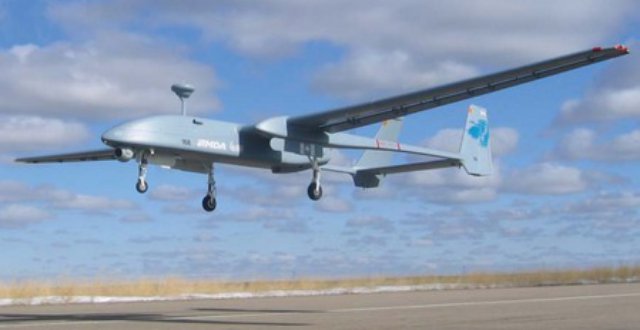Israel has escalated its bitter quarrel with Turkey, its erstwhile ally, by scrapping a $140 million deal for unmanned aircraft and advanced intelligence-gathering systems the Israelis fear could end up in the hands of Iran.
The move by the Defense Ministry, which has the power to veto defense exports, could cost Israel Aerospace Industries and the military electronics manufacturer Elbit Systems an estimated $90 million if Ankara demands compensation.
The Jerusalem Post reported that IAI and Elbit were discussing the “expected economic implications” of the ministry’s action with Director General Udi Shani and the possibility they will face Turkish lawsuits.
Under the 2005 deal, state-run IAI, flagship of Israel’s defense industry, was contracted to supply Turkey with 10 Heron UAVs, with Elbit subsidiary El-Op producing the advanced infrared Lorop camera that the surveillance drones would carry.
The rift with Turkey has cost the Israeli defense industry potential contracts worth billions of dollars. There have been efforts to salvage the deals but the Israeli decision to halt exports of the Heron package is likely to dash any hopes of keeping them alive.
The ministry’s refusal to renew the export license for the airborne surveillance system followed a declaration by Turkish Prime Minister Recep Tayyip Erdogan in September that his country and neighbouring Iran were “firm in their stand” against Kurdish separatists based in northern Iraq.
Turkish commanders have claimed that Israel is aiding the Turkish rebels, who seek Kurdish autonomy in southeast Anatolia. Those allegations have never been verified but the Israelis are suspected to have long supported, armed and trained Iraqi Kurds, initially against the Baathist regime in Baghdad in the 1970s and ’80s and more recently to destabilize Iran.
The Israeli Defense Ministry noted when it announced the cancellation of the contract that “we do not allow such advanced technology to fall into other hands as in this way the system can fall into enemy hands.”
The ministry said Israel was seeking to improve ties with Erdogan’s Islamist government in Ankara, although it didn’t elaborate.
But it stressed that despite this, it couldn’t permit the delivery of the Elbit system to Turkey because of security concerns.
The Heron deal, under which Turkish companies headed by Turkish Aerospace Industries would provide subsystems and services, was plagued by delays.
In 2009, Turkey threatened lawsuits unless the Israeli package was delivered. Soon after, IANA and Elbit withdrew technical teams from Turkey.
While the loss of the Turkish market was a hard blow for Israel’s defense industry, it’s increasingly looking to Asia and Latin America to develop new markets.
UAS are a big seller. Tel Aviv’s Globes business daily describes Israel as “a superpower in unmanned vehicles,” sales of which made up a substantial portion of defense exports totaling $9.6 billion in 2010.
Source: UPI


I think you will find that the project that has lost its export approvals is a stand off imaging pod for Turkish Air Force F-16 fighters, rather than the IAI Heron. Elbit, which is the prime contractor for the LOROP pod project, has put out its own release on this matter. The Israeli Govt has also made its own public statements on the suspension of exports approvals and does not identify IAI at all as an affected party. UPI’s report is an extension of an origin article in the Jerusalem Post that cited IAI as affected by the cancellation of export approvals but that newspaper did not link Heron to the matter. UPI on the whole is not a reliable source when it comes to reporting matters related to the unmanned systems sector and its news items are best approached with caution. As always, going back to the original sources is the soundest policy.
Peter, many thanks for the correction. Your input is greatly appreciated, as always. Will treat UPI with more caution in future!